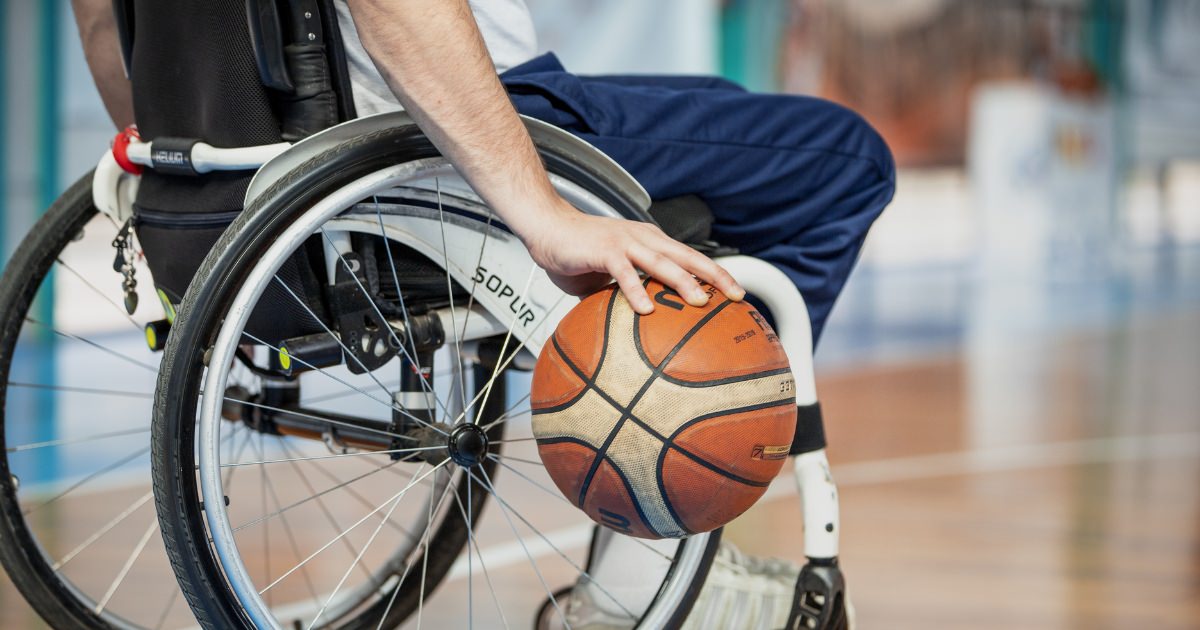Adaptive Sports: Being Active and Building Valuable Workplace Skills
 Adaptive sports are competitive or recreational activities that are inclusive of people with disabilities. Sports teams and community engagement provide numerous benefits for individuals with disabilities.
Adaptive sports are competitive or recreational activities that are inclusive of people with disabilities. Sports teams and community engagement provide numerous benefits for individuals with disabilities.
In addition to improving physical health, participating in these activities also fosters teamwork, builds confidence, and helps individuals develop transferable skills that can be
useful in the workplace. Joining sports teams or engaging in other forms of community activities can be life-changing for individuals with disabilities, as it fosters a sense of belonging, purpose and achievement. Participation in adaptive sports is also associated with a higher likelihood of employment.
- Building Connections
Participating in adaptive sports provides athletes with disabilities a unique platform to build meaningful connections with peers, coaches and mentors. The camaraderie and teamwork in sports create an environment where athletes learn to communicate effectively, collaborate with others and develop strong interpersonal skills. These connections extend beyond the field or court, often leading to lasting friendships and professional networks. The ability to form genuine relationships is a valuable skill in the workplace.
- Strengthening Confidence
Adaptive sports empower athletes with disabilities by enhancing self-confidence and self-esteem. Overcoming challenges and achieving success in sports can be transformative, creating a sense of accomplishment and proving that limitations can be conquered. This newfound confidence is highly transferable to the professional world. Athletes who have navigated the demands of adaptive sports develop resilience, a positive self-image and the ability to face adversity head-on. In the workplace, this translates into the confidence to take on new tasks, handle pressure and persevere through setbacks.
- Developing Transferable Skills
Adaptive sports demand a wide array of skills that extend well beyond athletics. Athletes with disabilities develop discipline, time management, goal setting, and determination – skills that apply directly to the workplace. The rigorous training, strategic thinking and adaptability required in sports can be seamlessly transferred to a career. For instance, the dedication to practice and improve in sports can translate to a strong work ethic and a commitment to ongoing skill development on the job.
- Integrating Unique Perspectives in the Workplace
Participating in adaptive sports equips athletes with disabilities with a unique perspective that can be valuable in the workplace. These athletes are accustomed to navigating a world designed for able-bodied individuals and have honed problem-solving abilities to overcome various obstacles. Their experiences foster creativity in finding innovative solutions, which is a sought-after skill in all workplaces. Additionally, their familiarity with adaptive technologies and accommodations promotes inclusivity and accessibility, contributing to a more welcoming work environment.
- Fostering Inclusion and Empowerment
Adaptive sports foster a sense of inclusion and empowerment among athletes with disabilities. In the world of sports, people are defined by their talents and dedication, not their disability. This shift in perception can shift into their professional lives, where they approach challenges with the belief that they can contribute meaningfully. Employers increasingly recognize the value of various perspectives, and athletes with disabilities bring a unique viewpoint that enriches decision-making and problem-solving processes.
Let's take a look at "Sarah's" story, whose participation in adaptive sports and Social Security's Ticket to Work Program helped her get a job.
Sarah's Story
Sarah found solace and strength through adaptive sports. A longtime basketball fan, she took on wheelchair basketball. She developed valuable qualities like teamwork, adaptability and determination — skills that helped her on and off the court.
When she was ready, Sarah started thinking about work.
Through Social Security's Ticket to Work (Ticket) Program, she connected with an Employment Network (EN) and worked with staff to build a resume, practice interview skills and find job opportunities. During her job search, her preparation impressed potential employers. Eventually, she secured a position as a disability advocate for a non-profit organization. Her journey from adaptive sports enthusiast to disability advocate not only transformed her life but serves as an example to countless others on a similar path.
As Sarah's story shows, the benefits of participating in adaptive sports extend well beyond physical fitness and recreational enjoyment. Athletes with disabilities gain valuable workplace skills that prepare them for success in their professional lives. From building connections and strengthening confidence, to developing transferable skills and fostering inclusivity, adaptive sports provide a holistic training ground that equips athletes to excel in the workplace and contribute meaningfully to their careers.
About Ability360
![]() Ability360 is a Center for Independent Living, otherwise known as a CIL. It is a 501 (c)(3) nonprofit organization offering and promoting programs to empower people with all disabilities in Arizona so that they may achieve or continue independent lifestyles within the community. Ablility360 is an Employment Network offering services through Social Security's Ticket to Work Program.
Ability360 is a Center for Independent Living, otherwise known as a CIL. It is a 501 (c)(3) nonprofit organization offering and promoting programs to empower people with all disabilities in Arizona so that they may achieve or continue independent lifestyles within the community. Ablility360 is an Employment Network offering services through Social Security's Ticket to Work Program.